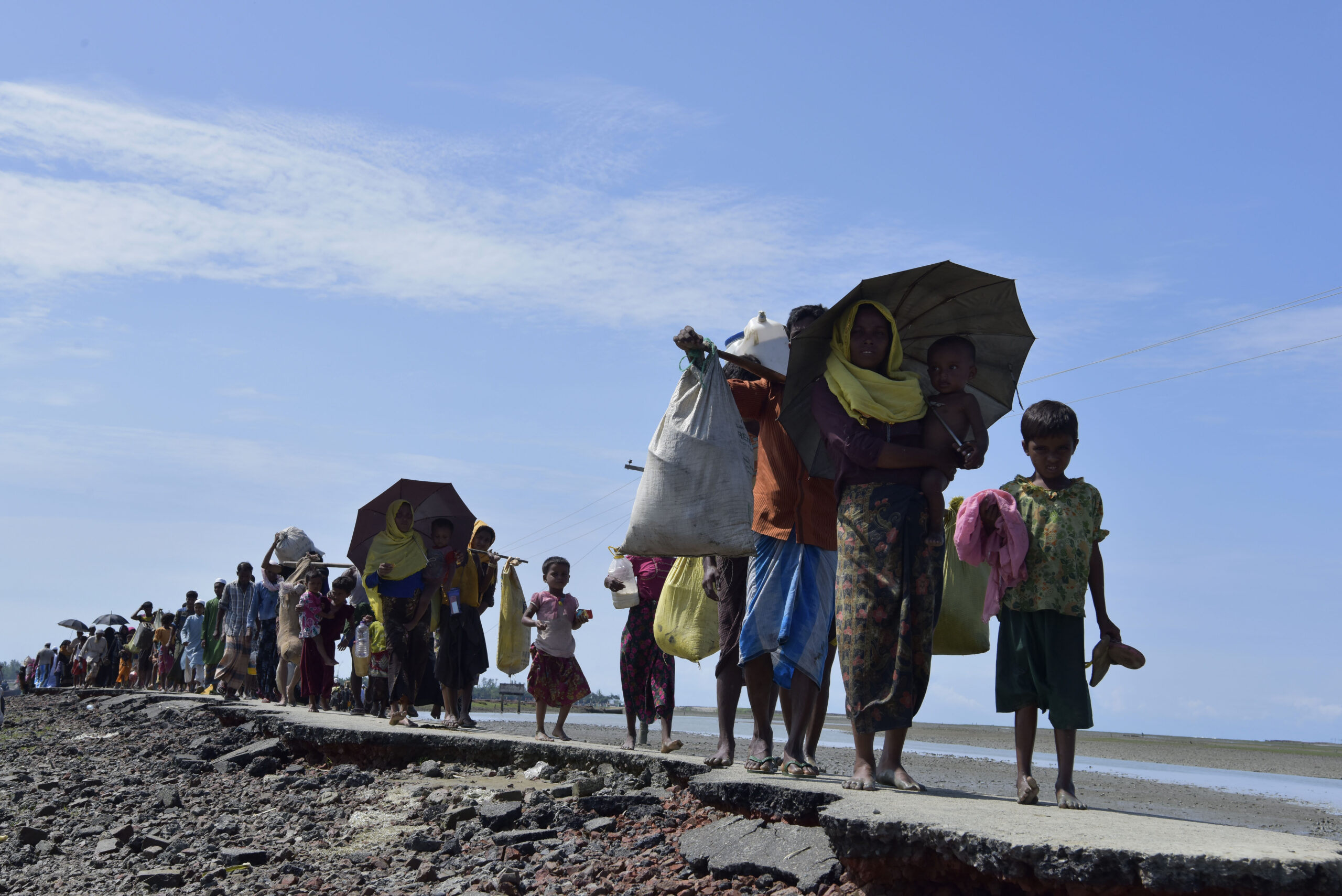It always seems to me that those who are without power, who have to create their own in a makeshift way, know more about life than those who govern. (John Berger)
Albert Artwell, Jamaican artist, lived in my area of Jamaica. He was deeply influenced by his Rastafarian faith. Many of his works depicted Biblical scenes.
One afternoon I dropped by his house and the lean-to he used as his studio. He was always friendly and welcoming. Just then he was putting the finishing touches to a biblical scene. It was the crossing of the Red Sea by the Jewish people fleeing slavery and oppression in Egypt.
As the Jewish people moved towards the separated waters making their way to the promised land, a figure, man or woman on the far bank seemed to be going in the opposite direction towards Egypt. I asked Albert what was the significance of the lone human going towards Egypt? He answered with a question; who takes care of the Egyptians?
As I hear and read about the imposition of national border controls banning people on the move from entering other countries because of difference in race, culture, religion, politics or social leanings, unworthy or in some way not measuring up to the nostalgic perfect images of those inside the borders, I have to ask the question I asked Albert; who are the excluded and who cares for them?
This is not something that is just happening as a result of Covid-19. It has been going on for a long time. In many of the national political campaigns over the past twenty years, the “outsider” the “not us” have become the demonised, rejected and excluded.
There are many examples of this not just in slogans of “taking back control” and “build the wall” but in actually ignoring the plight of those seeking safety on land and sea.
The plight of the Rohingya come to mind. Expelled from Myanmar because they are Muslims, approaching safe shore lines are turned away, left to drown. Similar scenes from the Mediterranean of people fleeing war zones in north Africa and the Middle East are daily news items as are families fleeing common violence in central America detained and separated in new gulags at borders.
Over the past six years more than twenty thousand migrants and refugees have been reported to have drowned in the Mediterranean. Unofficial figures put the number much higher as the bodies of those who do not survive are not recorded.
Why is this seeming indifference to the plight of those who are different and destitute seeking safety so prominent in the present affluent century given the many international humanitarian declarations that practically all states have signed up to over the past seventy years?
Presently, everywhere, politicians and the public generally are in solidarity with the Black Lives Matter movement, yet a blind eye seems to be turned to those who are different, African, Asian, poor and in peril fleeing danger both on land and at sea.
Is it not better to have a coordinated rescue plan for these people than abandon them to ruthless traffickers, predators and death? Or if not, at least support humanitarian rescue organisations supported by a sympathetic public.
Nationalistic patriotism is a word that has come into common usage over the past few years. Is there no space in patriotism for compassion and concern for the plight of those who are “outsiders” “not us”?
In the minds of John Blowick and Edward Galvin, founders of Columban Mission in 1918, the Chinese people were destitute outsiders. The depiction of China and the Chinese people in the western media was then and for the best part of the past century derogatory to say the least.
Both John Blowick and Edward Galvin decided that their mission should be to the Chinese because of their exclusion and destitution. Today, with the rise of national puritanism, nativism and selective racial, ethnic and cultural supremacy, the Christian Church and indeed other major religions, to be authentic, need to be asking; who takes care of the excluded?
Mia Crostwaite asks; If the Evangelist Matthew were writing his gospel today…Maybe it would include something like this:
When you saw my love for my children
And how much I longed to give
them a better life
you did not turn me away,
Then you did it unto me.
Is it too much to hope for?
Fr Bobby Gilmore SSC

